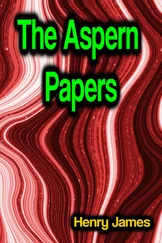Henry James - The American Scene
Здесь есть возможность читать онлайн «Henry James - The American Scene» — ознакомительный отрывок электронной книги совершенно бесплатно, а после прочтения отрывка купить полную версию. В некоторых случаях можно слушать аудио, скачать через торрент в формате fb2 и присутствует краткое содержание. Жанр: unrecognised, на английском языке. Описание произведения, (предисловие) а так же отзывы посетителей доступны на портале библиотеки ЛибКат.
- Название:The American Scene
- Автор:
- Жанр:
- Год:неизвестен
- ISBN:нет данных
- Рейтинг книги:3 / 5. Голосов: 1
-
Избранное:Добавить в избранное
- Отзывы:
-
Ваша оценка:
- 60
- 1
- 2
- 3
- 4
- 5
The American Scene: краткое содержание, описание и аннотация
Предлагаем к чтению аннотацию, описание, краткое содержание или предисловие (зависит от того, что написал сам автор книги «The American Scene»). Если вы не нашли необходимую информацию о книге — напишите в комментариях, мы постараемся отыскать её.
The American Scene — читать онлайн ознакомительный отрывок
Ниже представлен текст книги, разбитый по страницам. Система сохранения места последней прочитанной страницы, позволяет с удобством читать онлайн бесплатно книгу «The American Scene», без необходимости каждый раз заново искать на чём Вы остановились. Поставьте закладку, и сможете в любой момент перейти на страницу, на которой закончили чтение.
Интервал:
Закладка:
Chapter
1
THE single impression or particular vision most answering to the greatness of the subject would have been, I think, a certain hour of large circumnavigation that I found prescribed, in the fulness of the spring, as the almost immediate crown of a return from the Far West. I had arrived at one of the transpontine stations of the Pennsylvania Railroad; the question was of proceeding to Boston, for the occasion, without pushing through the terrible town—why "terrible," to my sense, in many ways, I shall presently explain—and the easy and agreeable attainment of this great advantage was to embark on one of the mightiest (as appeared to me) of train-bearing barges and, descending the western waters, pass round the bottom of the city and remount the other current to Harlem; all without "losing touch" of the Pullman that had brought me from Washington. This absence of the need of losing touch, this breadth of effect, as to the whole process, involved in the prompt floating of the huge concatenated cars not only without arrest or confusion, but as for positive prodigal beguilement of the artless traveller, had doubtless much to say to the ensuing state of mind, the happily-excited and amused view of the great face of New York. The extent, the ease, the energy, the quantity and number, all notes scattered about as if, in the whole business and in the splendid light, nature and science were joyously romping together, might have been taking on again, for their symbol, some collective presence of great circling and plunging, hovering and perching seabirds, white-winged images of the spirit, of the restless freedom of the Bay. The Bay had always, on other opportunities, seemed to blow its immense character straight into one's face—coming "at" you, so to speak, bearing down on you, with the full force of a thousand prows of steamers seen exactly on the line of their longitudinal axis; but I had never before been so conscious of its boundless cool assurance or seemed to see its genius so grandly at play. This was presumably indeed because I had never before enjoyed the remarkable adventure of taking in so much of the vast bristling promontory from the water, of ascending the East River, in especial, to its upper diminishing expanses.
Something of the air of the occasion and of the mood of the moment caused the whole picture to speak with its largest suggestion; which suggestion is irresistible when once it is sounded clear. It is all, absolutely, an expression of things lately and currently done, done on a large impersonal stage and on the basis of inordinate gain—it is not an expression of any other matters whatever; and yet the sense of the scene (which had at several previous junctures, as well, put forth to my imagination its power) was commanding and thrilling, was in certain lights almost charming. So it befell, exactly, that an element of mystery and wonder entered into the impression—the interest of trying to make out, in the absence of features of the sort usually supposed indispensable, the reason of the beauty and the joy. It is indubitably a "great" bay, a great harbour, but no one item of the romantic, or even of the picturesque, as commonly understood, contributes to its effect. The shores are low and for the most part depressingly furnished and prosaically peopled; the islands, though numerous, have not a grace to exhibit, and one thinks of the other, the real flowers of geography in this order, of Naples, of Capetown, of Sydney, of Seattle, of San Francisco, of Rio, asking how if they justify a reputation, New York should seem to justify one. Then, after all, we remember that there are reputations and reputations; we remember above all that the imaginative response to the conditions here presented may just happen to proceed from the intellectual extravagance of the given observer. When this personage is open to corruption by almost any large view of an intensity of life, his vibrations tend to become a matter difficult even for him to explain. He may have to confess that the group of evident facts fails to account by itself for the complacency of his appreciation. Therefore it is that I find myself rather backward with a perceived sanction, of an at all proportionate kind, for the fine exhilaration with which, in this free wayfaring relation to them, the wide waters of New York inspire me. There is the beauty of light and air, the great scale of space, and, seen far away to the west, the open gates of the Hudson, majestic in their degree, even at a distance, and announcing still nobler things. But the real appeal, unmistakably, is in that note of vehemence in the local life of which I have spoken, for it is the appeal of a particular type of dauntless power.
The aspect the power wears then is indescribable; it is the power of the most extravagant of cities, rejoicing, as with the voice of the morning, in its might, its fortune, its unsurpassable conditions, and imparting to every object and element, to the motion and expression of every floating, hurrying, panting thing, to the throb of ferries and tugs, to the plash of waves and the play of winds and the glint of lights and the shrill of whistles and the quality and authority of breeze-borne cries—all, practically, a diffused, wasted clamour of detonations—something of its sharp free accent and, above all, of its sovereign sense of being "backed" and able to back. The universal applied passion struck me as shining unprecedentedly out of the composition; in the bigness and bravery and insolence, especially, of everything that rushed and shrieked; in the air as of a great intricate frenzied dance, half merry, half desperate, or at least half defiant, performed on the huge watery floor. This appearance of the bold lacing-together, across the waters, of the scattered members of the monstrous organism—lacing as by the ceaseless play of an enormous system of steam-shuttles or electric bobbins (I scarce know what to call them), commensurate in form with their infinite work—does perhaps more than anything else to give the pitch of the vision of energy. One has the sense that the monster grows and grows, flinging abroad its loose limbs even as some unmannered young giant at his "larks," and that the binding stitches must for ever fly further and faster and draw harder; the future complexity of the web, all under the sky and over the sea, becoming thus that of some colossal set of clockworks, some steel-souled machine-room of brandished arms and hammering fists and opening and closing jaws. The immeasurable bridges are but as the horizontal sheaths of pistons working at high pressure, day and night, and subject, one apprehends with perhaps inconsistent gloom, to certain, to fantastic, to merciless multiplication. In the light of this apprehension indeed the breezy brightness of the Bay puts on the semblance of the vast white page that awaits beyond any other perhaps the black overscoring of science.
Let me hasten to add that its present whiteness is precisely its charming note, the frankest of the signs you recognize and remember it by. That is the distinction I was just feeling my way to name as the main ground of its doing so well, for effect, without technical scenery. There are great imposing ports—Glasgow and Liverpool and London—that have already their page blackened almost beyond redemption from any such light of the picturesque as can hope to irradiate fog and grime, and there are others, Marseilles and Constantinople say, or, for all I know to the contrary, New Orleans, that contrive to abound before everything else in colour, and so to make a rich and instant and obvious show. But memory and the actual impression keep investing New York with the tone, predominantly, of summer dawns and winter frosts, of sea-foam, of bleached sails and stretched awnings, of blanched hulls, of scoured decks, of new ropes, of polished brasses, of streamers clear in the blue air; and it is by this harmony, doubtless, that the projection of the individual character of the place, of the candour of its avidity and the freshness of its audacity, is most conveyed. The "tall buildings," which have so promptly usurped a glory that affects you as rather surprised, as yet, at itself, the multitudinous sky-scrapers standing up to the view, from the water, like extravagant pins in a cushion already overplanted, and stuck in as in the dark, anywhere and anyhow, have at least the felicity of carrying out the fairness of tone, of taking the sun and the shade in the manner of towers of marble. They are not all of marble, I believe, by any means, even if some may be, but they are impudently new and still more impudently "novel"—this in common with so many other terrible things in America—and they are triumphant payers of dividends; all of which uncontested and unabashed pride, with flash of innumerable windows and flicker of subordinate gilt attributions, is like the flare, up and down their long, narrow faces, of the lamps of some general permanent "celebration."
Читать дальшеИнтервал:
Закладка:
Похожие книги на «The American Scene»
Представляем Вашему вниманию похожие книги на «The American Scene» списком для выбора. Мы отобрали схожую по названию и смыслу литературу в надежде предоставить читателям больше вариантов отыскать новые, интересные, ещё непрочитанные произведения.
Обсуждение, отзывы о книге «The American Scene» и просто собственные мнения читателей. Оставьте ваши комментарии, напишите, что Вы думаете о произведении, его смысле или главных героях. Укажите что конкретно понравилось, а что нет, и почему Вы так считаете.












